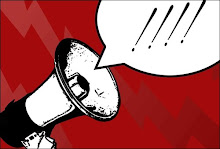As part of Model UN this year, I participated in a model security council. And I learnt something. THE SECURITY COUNCIL IS PURE EVIL.
For those of you who don't know, there are two most important branches of the UN are the general assembly and the security council. The general assembly what most people think of when they think of the UN - all the delegates from all the countries sitting in rows, Krushchev beating his shoes on the table. An international parliament, if you will. However, the GA actually has very little power. It can only recommend actions for member states to take, not enforce them. The security council, however, welds a large amount of power, as, unlike the GA, its resolutions are binding for all member states. The security council is the select branch of the United Nations responsible for dealing with "threats to world peace". The security council does many things - it controls the UN peacekeeping forces, it can demand a ceasefire, it recommends candidates for the Secretary-general position, and it can authorize"enforcement measures" such as economic sanctions, suspension from the general assembly and military action, on member states who do bad things. (a better explanation of the powers and responsibilities of the security council)
The security council is made up of ten rotating members who are elected to the council by the GA in year terms. Then there are the permanent five, five member states who have sat on the security council since 1945 and will continue into the forceable future. They are:
- THE UK
- FRANCE
- RUSSIA
- CHINA
- THE USA
So why should these countries have such great power? Well, simply, because they won World War II. The UN was established in 1945, after a decision made by Churchill, Stalin and Roosevelt during the Yalta conference. As the victors of the war, Britain, the USA and the USSR were the greatest world powers at the time, and so were made the permanent members of the security council. Their ally, France was also made a permanent member, because it was struggling to remain a power and losing control of its colonies, and the others need it to be a powerful nation so it could help keep an eye on Germany, amongst other things. Oh, and China was there so the rest of the world didn't feel totally left out.
But the world has changed a lot since 1945. The superpowers of 1945 are no longer the superpowers of today. Then, most of Africa and Asia were western colonies, now they are free and independent states. Britain and France never really got over the strain of two successive world wars (and the loss of all their colonies), but new powers are rapidly emerging. More and more, people are calling for reform of the security council, to change it so that it reflects a modern world order.
Many believe the easiest way to do this would be to expand the security council, adding more permanent members - current world powers, who represent a wider range of areas. Brazil, Japan, India, Germany, Nigeria and South Africa have all tried to persuade the world they should be permanent members. However, some believe that this would only hinder the Security Council, making it harder for consensus to be reached. Others support the idea of a larger security council, but not more permanent members. It doesn't really matter though, because the only way it can be changed is by changing the UN Charter - which requires the agreement of all five permanent members of the security council. And they don't want to share the power.
But you know what? I don't think the security council needs anymore permanent members. I don't think it needs ANY permanent members, much less ones with that much power. Call me idealistic, but I think that we should get rid of the veto all together. Think of it like this - if the UN is like an international parliament (which it isn't really), then the Security Council is like, the cabinet ministers. Or something. And the P5 are the evil (possibly schizophrenic?) dictator at the top. It's not democratic. And how can we expect to fix the problems of the world if those with the most problems have no say?

